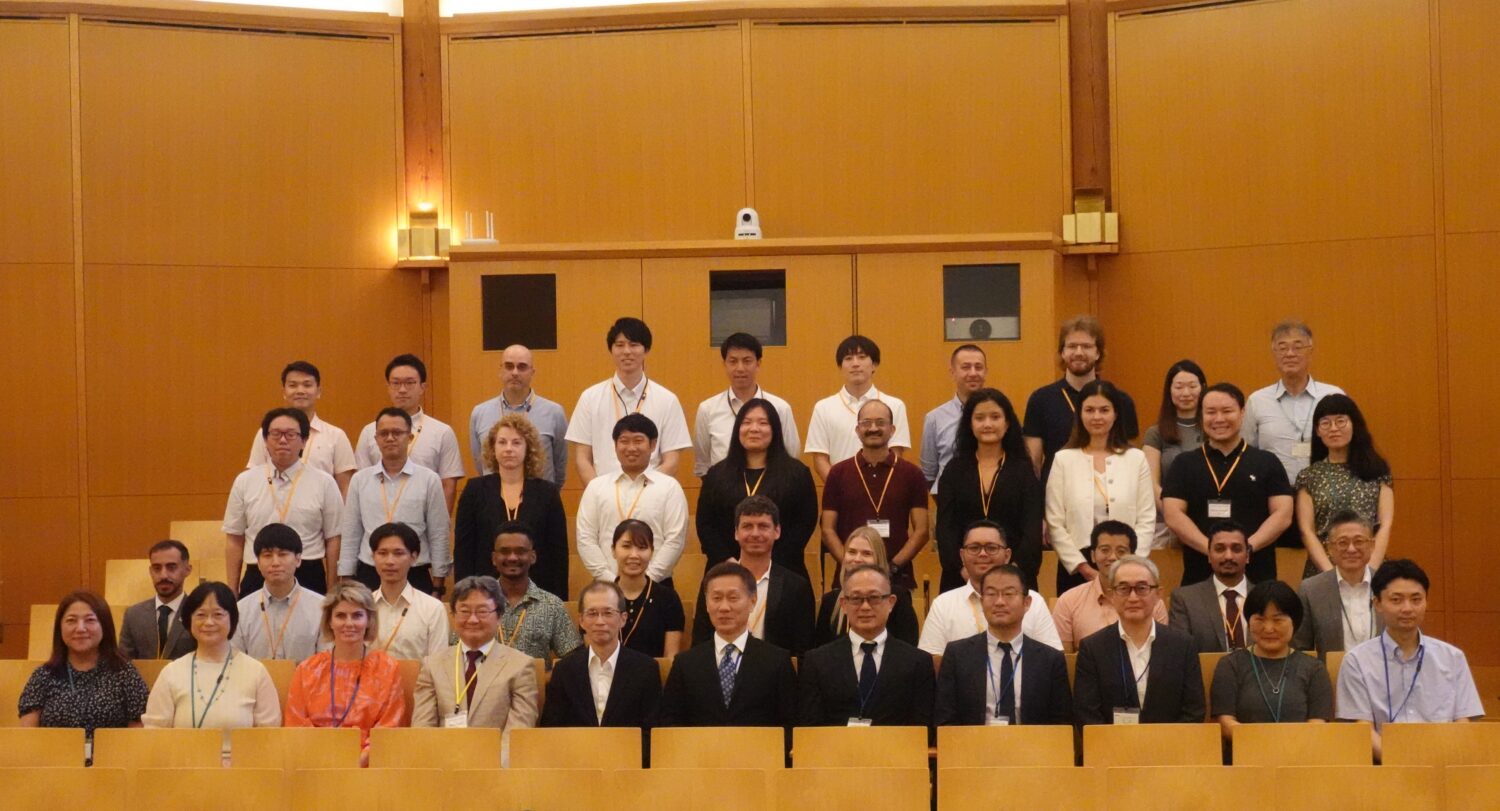At the outset of the August 9 meeting of the Strategic Policy Committee—the first such meeting in a year and a half—METI Minister Hiroshige Seko said that it was not yet time to alter the framework of the plan. The committee falls under the Advisory Committee for Natural Resources and Energy, and the Strategic Policy Committee is headed by Masahiro Sakane, a councilor of Komatsu Ltd.
At the meeting, Minister Seko reviewed the changes in energy circumstances in the six years since the giant earthquake of March 11, 2011, adding that the question was to discuss what must be done to achieve the goal for 2030. He then called on the committee to carry out vigorous discussions toward addressing a revised energy policy.
In 2016, Japan issued its plan for measures to combat climate change under the Paris Agreement, an international framework for controlling future greenhouse gas emissions. According to that, Japan’s long-term target should be to reduce greenhouse gas emissions by eighty percent by the year 2050.
A “Round Table Studying the Energy Situation”—a group newly established by METI to embrace wide-ranging opinions in pursuit of all options in coordination with deliberations at the Strategic Policy Committee—will begin meeting on August 30.
At the August 9 ANRE meeting, prior to deliberations, six key issues were presented toward a long-term outlook for energy supply and demand through 2030, as follows: restoration of Fukushima, renewable energies, energy conservation, nuclear power, natural resources and thermal power, and cross-disciplinary issues (including electricity system reform).
The greatest challenge for nuclear power is restoration of social confidence, although it has made contributions to controlling costs and CO2 emissions through the restart of nuclear power plants (NPPs).
 At the meeting, the members of the committee expressed various views. First to speak was Professor Takeo Kikkawa of the Tokyo University of Science’s Graduate School of Innovation Studies, and who was involved in the previous revision of the plan. He expressed his concern about Japan’s slow progress in restarting NPPs, saying that the government should “address the replacement of older NPPs while reducing dependency on nuclear power.”
At the meeting, the members of the committee expressed various views. First to speak was Professor Takeo Kikkawa of the Tokyo University of Science’s Graduate School of Innovation Studies, and who was involved in the previous revision of the plan. He expressed his concern about Japan’s slow progress in restarting NPPs, saying that the government should “address the replacement of older NPPs while reducing dependency on nuclear power.”
Another member, Governor Issei Nishikawa of Fukui Prefecture, said that the “nuclear fuel cycle has turned out differently than in the current plan,” noting its effects on social confidence. Speaking from the viewpoint of siting areas, he referred to specific problems faced by nuclear facilities in his prefecture, including the decommissioning of the prototype fast-breeder reactor (FBR) Monju, NPP lifetime extensions, the interim storage of spent nuclear fuel, and the like.
Meanwhile, another committee member, Professor Akira Yamaguchi of the Department of Nuclear Engineering and Management at the University of Tokyo, emphasized the importance of “foreseeability” and the need to ensure options to deal with uncertainties in the future. Yamaguchi has participated in councils on nuclear safety improvement, research infrastructure and human resources, nuclear damage compensation, and others.
Also, another member, Keigo Akimoto, systems research group leader at the Research Institute for Innovative Technology for the Earth (RITE), spoke on progress under the long-term outlook for energy supply and demand. He expressed his concern that energy-intensive industries would decline as energy conservation efforts took hold. He then urged the committee to seek a “flexible” energy policy.
In response to that, committee member Nobuko Mizumoto, who is managing executive officer of IHI Corporation, and thus adopting a manufacturer’s point of view, strongly urged that the construction of new NPPs remain an option for the sake of continuing and maintaining nuclear technology and human resources.
Speaking from a consumers’ point of view, on the other hand, Hiroko Sakita, a journalist member of the committee, talked about the need to disseminate information, based on her experience in dialogue activities on the issue of high-level radioactive waste (HLW) disposal.
The last point to be raised by a committee member was that of Kikuko Tatsumi, senior executive advisor to the Nippon Association of Consumer Specialists. She urged prudence toward nuclear energy use, based on her visits to the area affected by the nuclear accident in Fukushima Prefecture.
Finally, committee chairman Masahiro Sakane, who had taken the initiative in energy mix discussions, reiterated the importance of energy conservation based on the opinions of the committee members.
He concluded the meeting by saying, “If fossil fuels are depleted, could we manage only with renewable energies? Before discussing building new NPPs, we should think about why existing plants are not being restarted.” He asked the members to deepen the discussions in the future.










